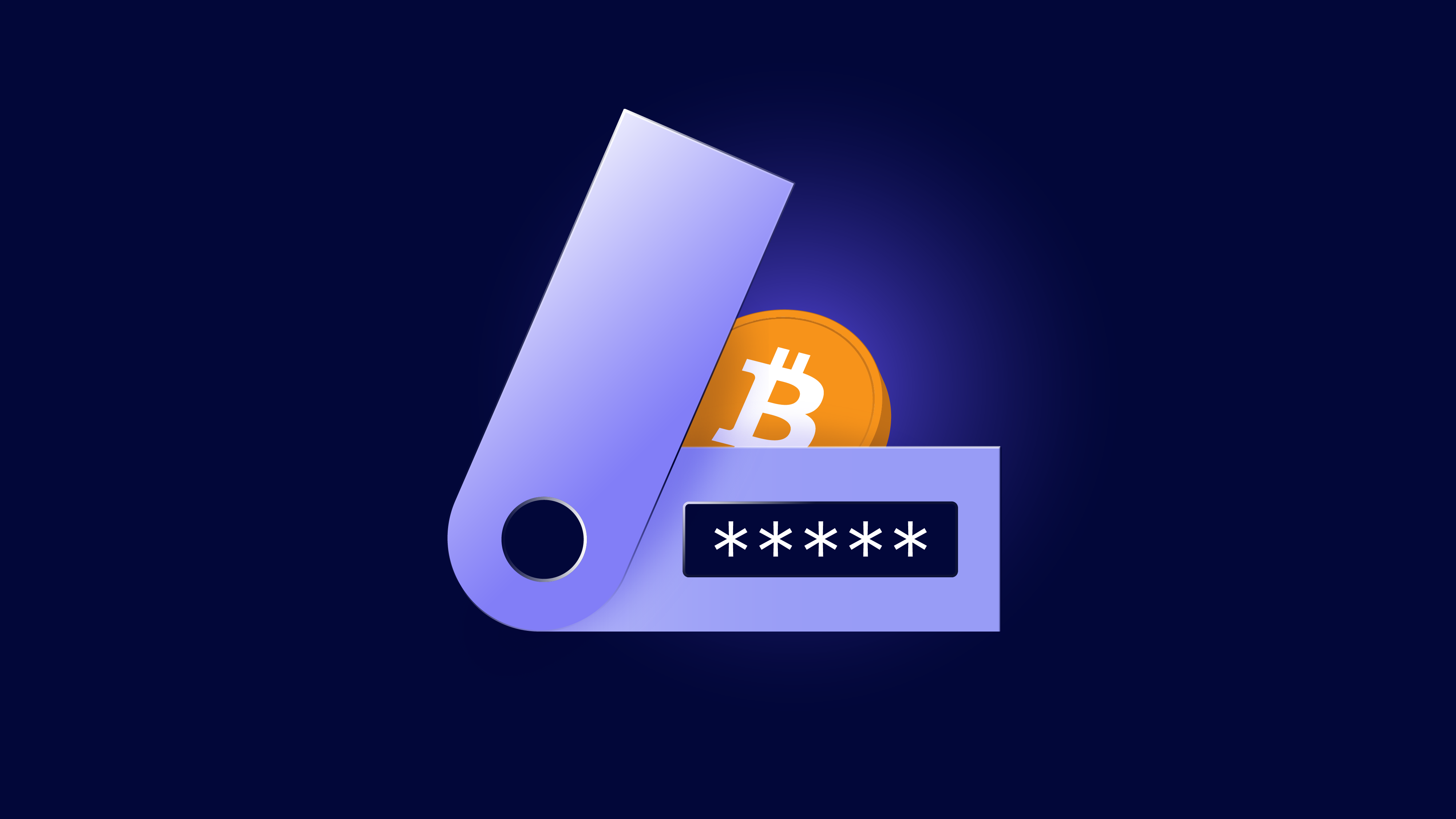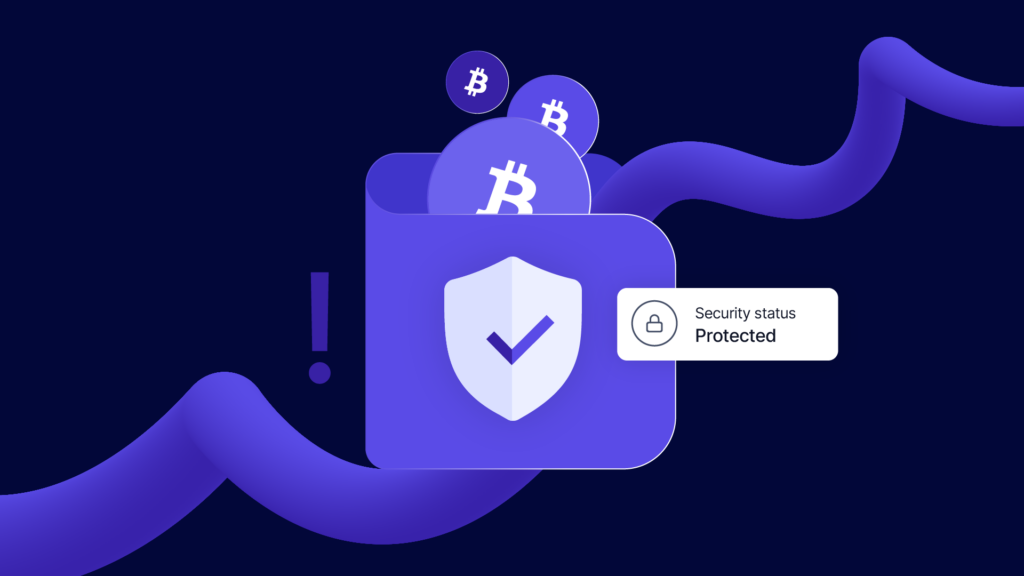
Accept crypto with CoinGate
Accept crypto with confidence using everything you need in one platform.
What is a Hardware Wallet? Tips, Recommendations & Benefits 2025

Cryptocurrency is revolutionizing the way we think about money because it offers a decentralized, secure, and digital alternative to traditional finance.
However, with great innovation comes the responsibility of safeguarding your assets.
If you’re new to crypto, one of the first things you’ll encounter is the need to store your funds securely. This is where a crypto hardware wallet comes into play.
What is a hardware wallet? – You may ask. Unlike traditional wallets that store cash or credit cards, a crypto wallet doesn’t hold physical money. Instead, it manages the private keys that give you access to your digital assets.
These private keys are the most important part of your cryptocurrency because they prove ownership and allow you to send or spend your funds. If someone gains access to your private keys, they gain control over your crypto.
Many beginners start by storing their cryptocurrency on exchanges or online wallets, as these options are easy and convenient. However, they come with significant risks, such as hacking, phishing, or even exchange failures.
To truly protect your investments, you need a solution that prioritizes security above all else—and that’s exactly what a hardware wallet offers.
Looking to spend your crypto? Discover 100+ crypto-friendly merchants in one place!
In this guide, we’ll explain what a hardware wallet is, how it works, and why it’s essential for beginners. By the end, you’ll understand why this small device is considered the gold standard for securing cryptocurrency. Let’s dive in!
How Do Hardware Wallets Work?

Private Key Storage
Cryptocurrencies don’t exist on the wallet itself. Instead, they live on a blockchain, a digital ledger. The wallet’s job is to store your private key securely, ensuring only you can access your funds.
Because hardware wallets store keys offline, they’re safe from online threats like hacking or phishing scams.
Transaction Signing
When you want to send crypto, the wallet connects to your computer or smartphone (via USB or Bluetooth). It signs the transaction using your private key without ever exposing it to the internet.
This makes transactions highly secure, even if your computer is infected with malware.
Receiving Crypto
To receive cryptocurrency, you simply share your public key (like a bank account number). The wallet doesn’t need to be connected to receive funds, so it’s always safe.
Why Are Hardware Wallets Important for Beginners?
If you’re just starting with crypto, it’s important to understand the risks of leaving your funds on exchanges or online wallets (learn the difference between online and offline wallets).
Hardware wallets provide a safer alternative by giving you full control over your assets.
Online vs. Offline Storage
Storing crypto on an exchange can be convenient but risky. Exchanges are prime targets for hackers, and if they get hacked, you could lose your funds.
With a hardware wallet, your keys are stored offline, making them immune to online attacks.
Ownership and Control
A core principle of crypto is: “Not your keys, not your coins.” If someone else holds your private keys (like an exchange), they technically own your crypto.
A hardware wallet ensures that you have full ownership and control of your assets.
Easy Recovery
Hardware wallets come with a recovery phrase—a series of 12-24 words that act as a backup. If your wallet is lost, stolen, or damaged, you can use this phrase to restore access to your funds on a new device.
What Does a Hardware Wallet Look Like?
Most hardware wallets are small, portable devices that resemble USB drives, mini calculators, or even credit cards. Their design focuses on convenience and security, making it easy for users to interact with their crypto while keeping private keys offline.
Hardware wallet features:
- A Screen: Displays transaction details, such as addresses and amounts, so you can verify everything before confirming.
- Physical Buttons: Used to manually confirm or reject transactions, adding an extra layer of protection against unauthorized actions.
How To Buy A Hardware Wallet? – Choose from the options below
When choosing a hardware wallet, you’ll find many reputable options, each offering unique features for different types of users. Here are some popular and trusted brands:
Trezor
- Models: Trezor One, Trezor Model T
- Features: Simple interface, strong security features, and support for thousands of cryptocurrencies. The Model T includes a touchscreen for easier navigation, while the Trezor One is a budget-friendly option.
- Best For: Those seeking ease of use and strong compatibility with different crypto assets.
Cypherock
- Model: Cypherock X1
- Features: The Cypherock X1 takes security to the next level by eliminating the need for a traditional recovery phrase. Instead of a single recovery seed, it splits your private keys into four encrypted hardware cards, which can be stored in different locations for added protection. This ensures that even if one card is lost or stolen, your funds remain safe. The X1 supports multiple cryptocurrencies and integrates with popular wallets like MetaMask.
- Best For: Users who want a recovery solution that avoids traditional seed phrases and prefer an innovative, decentralized approach to hardware wallet security.
NGRAVE
- Model: NGRAVE ZERO
- Features: Marketed as the most secure hardware wallet, the NGRAVE ZERO is air-gapped, meaning it never connects to the internet or any other device. It uses QR codes for data transfers, adding an extra layer of security.
- Best For: Advanced users or those who prioritize ultra-high security.
Blockstream
- Model: Jade
- Features: Lightweight, open-source hardware wallet that supports Bitcoin and Liquid assets. It integrates seamlessly with Blockstream’s ecosystem, making it ideal for Bitcoin enthusiasts.
- Best For: Bitcoin-focused users and developers who value open-source technology.
COLDCARD
- Models: COLDCARD Mk4
- Features: Designed specifically for Bitcoin, COLDCARD wallets are known for their air-gapped security and robust features like multisig support. It looks like a calculator and is perfect for users who want a no-frills, high-security Bitcoin wallet.
- Best For: Bitcoin maximalists and advanced users who require top-notch security.
Tapsigner
- Features: A credit card-sized hardware wallet developed by Coinkite, the makers of COLDCARD. It’s designed for simplicity and is often used in conjunction with mobile wallets to sign transactions.
- Best For: Users looking for an ultra-portable, minimalist hardware wallet solution.
Should You Buy a Hardware Wallet & Which One Should You Choose?
Selecting the right hardware wallet depends on your needs:
- Beginners may prefer user-friendly options like Ledger or Trezor.
- Bitcoin enthusiasts might lean toward COLDCARD, Blockstream Jade, or Tapsigner.
- Advanced users or those handling large amounts of crypto may prioritize security-first options like NGRAVE ZERO.
Regardless of your choice, all these wallets are excellent tools to secure your cryptocurrency and give you peace of mind while managing your investments. If you want to research more options, check out our Top 10 hardware wallets guide.
Benefits of a Hardware Wallet
Offline Security
The biggest advantage of a hardware wallet is that your private keys are stored offline. This means hackers, viruses, or malware cannot access them.
Protection Against Scams
Online wallets and exchanges are vulnerable to phishing attacks, where scammers trick you into revealing sensitive information. A hardware wallet keeps your keys secure, even if you accidentally click on a malicious link.
Beginner-Friendly Design
Despite their advanced security features, hardware wallets are designed to be easy to use. Most devices include step-by-step instructions for setup and transaction processing, making them accessible to crypto beginners.
Why Invest in a Hardware Wallet?
Whether you own a small amount of crypto or plan to invest more in the future, a hardware wallet is an essential tool for protecting your funds. Here’s why it’s worth it:
- Peace of Mind:
- Knowing your crypto is stored securely gives you confidence to explore and invest without constant worry about potential hacks.
- Affordable Security:
- Hardware wallets typically cost between $50 and $150—a small price to pay for safeguarding your assets, especially as their value grows.
Should You Get Yourself a Hardware Wallet?
A hardware wallet is one of the safest and easiest ways to protect your cryptocurrency. By keeping your private keys offline and in your control, it significantly reduces the risk of theft or loss. For beginners, it’s a must-have tool for securely entering the crypto world.
If you value your investments and want peace of mind, investing in a hardware wallet is the smartest decision you can make. Whether you choose Ledger, Trezor, NGRAVE, Blockstream or another trusted brand, you’re taking a crucial step toward safeguarding your crypto journey.
Here’s even more tips for crypto users on how to be safe and secure online.
Accept crypto with CoinGate
Accept crypto with confidence using everything you need in one platform.

